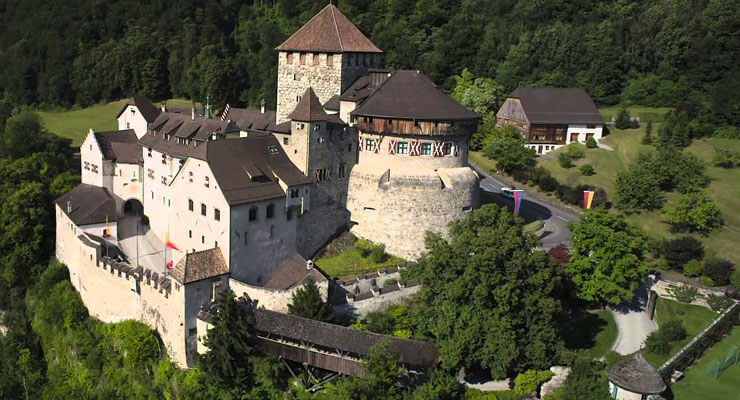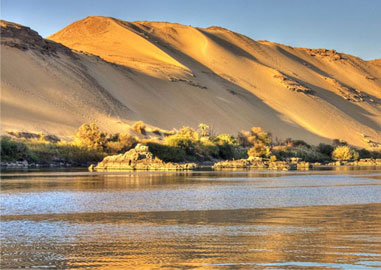
Liechtenstein - Facts about This Tiny Nation with the Largest Per Capita Income
Posted By JohnPer capita income is one of the strongest factors that are used to determine the level of economic growth and prosperity in the given nation-state of the world. Though extremely small in area and locked from all sides by land, the Principality of Liechtenstein has per capita income that is highest throughout the world as it is obvious from the GDP (nominal) per capita statistics revealed by the United Nations' report in 2012. However, the world economic surveys conducted by the World Bank and Central Intelligence Agency, place it at the second place. Straddling the border between Austria and Switzerland, Liechtenstein is actually a doubly-landlocked country owing to the fact that both the bordering nations are also already landlocked. For the sake of adding some interesting and geo-economically very important information to your existing knowledge about this awe-inspiring territory, a list of related facts is being presented as under:
- Officially, this sovereign central European Alpine country is known as the "Principality of Liechtenstein and measures merely 160 kilometer in its overall stretch of land.
- Lying entirely in the Alps, it is the smallest German-speaking country and enjoys the distinction of being the richest nation in the world based on the measure of GDP per capita.
- The same nation is ranked among those having the lowest unemployment rates in the world, that is, at 1.5 percent.
- Do you know why the official name of this Alpine country includes the word 'principality' in its names? It is so because Liechtenstein is a constitutional monarchy and is headed by a prince.
- The mountainous nature of the major part of its terrain renders it the perfect winter sports destination.
- You will also find a large number of cultivated fields and small farms that characterize its landscape both in the uper land of the south and the lower land of the north.
- Identified as a tax heaven, Liechtenstein has been divided into 11 municipalities and has a very strong financial sector located in the capital, Vaduz.
- It is indeed one of the mind blowing facts that despite its limited natural resources, Liechtenstein is grouped among those few countries of the world that have more registered companies than the number of citizens.
- Attracted by the very low business taxes and easy rules of incorporation, as many as 73,700 holding companies have established registered offices in the country.
- Here it is also worth mentioning that this tiny central European sovereign state is working hard to promote its image as a legitimate financial center in the world as the international money-launderers are being forced to face severe consequences.
- Though Liechtenstein could not secure the membership of the European Union, it does enjoy the membership of the United Nations & the European Free Trade Association, as well as it is considered to be the part of the Schengen Area and the European Economic Area.
- The overall population of this principality is 35,000 while the capital Vaduz is home to 5,000 individuals.
- Uzbekistan and Liechtenstein are the only countries in the world which are doubly-landlocked as the states surrounding them are also landlocked.
- Established within the Holy Roman Empire in 1719, the Principality of Liechtenstein came under the occupation of both the Russian and French Troops during the Napoleonic Wars.
- After becoming sovereign state in 1806, it joined the Germanic Confederation in 1815.
- With the dissolution of the Germanic Confederation, Liechtenstein was bestowed with the status of a fully independent country in 1866.
- Till the end of WW1, it remained closely tied with Austria but afterwards it abolished that relationship and entered into customs and monetary union with Switzerland.
- During the Second World War, Liechtenstein acted upon the policy of neutrality and focused on the country's economic prosperity by reducing taxes, thus spurring outstanding economic growth.
- In the year 2000, shortcomings in the nation's banking system provided a window for the financial institutions to go for money laundering, which indeed happened.
- To shun the practice of money laundering, Liechtenstein not only implemented anti-money laundering legislation, but also went for a Mutual Legal Assistance Treaty with the United States that became effective in 2003.
- The constitution of the country was legislated on 5th October, 1921 and the amendment came on 15th September, 2003.
- The top ten cities of the principality are Schaan, Vaduz, Triesen, Balzers, Eschen, Mauren, Triesenberg, Guggell, Gamprin, and Schellenberg, where the first one is most populous while the last one is least populous.
- Agricultural & energy products, raw materials, foodstuffs, machinery, metal goods, textiles and motor vehicles are the imports, while Liechtenstein exports hardware, motor vehicle parts, dental products, prepared foodstuffs, optical products, electronic equipment, audio & video connectors, and small specialty machinery.
World Information - Latest Articles

Most Natural Beautiful Country in the World
Written By IsaacQuantifying the beauty of a country for the sake of ranking is a tough task. It requires deep...

Facts About the Most Technologically Advanced Cities in the World
Posted By IsaacToday economic strength and advances in technology go hand in hand in determining...

Largest River in The World
Posted By IsacThousands of rivers flow through different parts of the earth and enrich it with precious...
